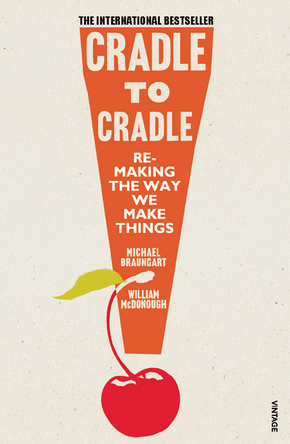Cradle to Cradle - Remaking the Way We Make Things. (Patterns of the Planet)
| Verlag | Random House UK |
| Auflage | 2009 |
| Seiten | 208 |
| Format | 13,0 x 19,6 x 1,4 cm |
| Gewicht | 176 g |
| Artikeltyp | Englisches Buch |
| ISBN-10 | 0099535475 |
| EAN | 9780099535478 |
| Bestell-Nr | 09953547EA |
Autos aus Autos? Schuhe als Düngemittel für unsere Balkonblumen? Zukünftig gibt es nur noch zwei Arten von Produkten: Verbrauchsgüter, die vollständig biologisch abgebaut werden können, und Gebrauchsgüter, die sich endlos recyclen lassen. Die Devise lautet: Nicht weniger müssen wir produzieren, sondern verschwenderisch und in technischen und biologischen Kreisläufen. Eine ökologisch-industrielle Revolution steht uns bevor, mit der Natur als Vorbild. Und was die beiden Fachleute in anschaulicher Weise darbieten, ist keineswegs nur graue Theorie, sondern das Ergebnis eigener praktischer Erfahrungen: Michael Braungart und William McDonough erproben seit Jahren mit Firmen wie Ford, Nike, Unilever und BP erfolgreich die Realisierbarkeit ihrer Ideen.
A groundbreaking, passionately-argued and visionary call to arms. 'There's an alternative responsible future persuasively offered by Braungart and McDonough. The survival of the planet can be re-stated in terms of stimulus, opportunity, challenge and reward. Works for me.' Stephen Bayley
Recycling is good, isn't it?
In this visionary book, chemist Michael Braungart and architect William McDonough challenge this status quo and put forward a manifesto for an intriguing and radically different philosophy of environmentalism.
"Reduce, reuse, recycle". This is the standard "cradle to grave" manufacturing model dating back to the Industrial Revolution that we still follow today. In this thought-provoking read, the authors propose that instead of minimising waste, we should be striving to create value. This is the essence of Cradle to Cradle: waste need not to exist at all. By providing a framework of redesign of everything from carpets to corporate campuses, McDonough and Braungart make a revolutionary yet viable case for change and for remaking the way we make things.
Rezension:
The best argument for good design is that it lasts. The best argument for good science is that it deplores waste. I'm bored with guilty and technologically illiterate environmental Luddites describing a future of guilt and privation led in caves. There's an alternative responsible future persuasively offered by Braungart and McDonough. The survival of the planet can be re-stated in terms of
stimulus, opportunity, challenge and reward. Works for me.
Stephen Bayley

